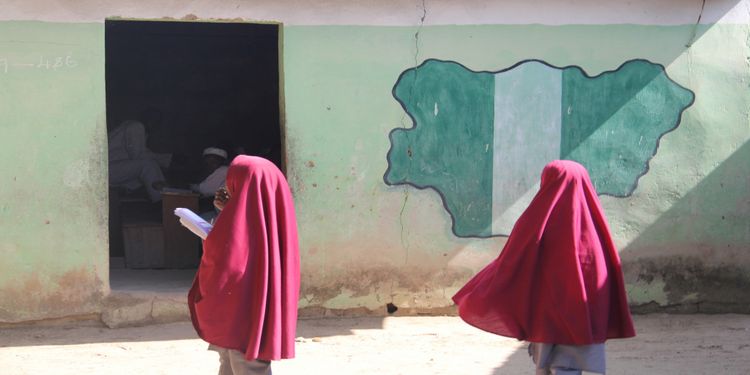Understanding the Role of Women in Nigeria’s Non-State Armed Groups and Security Architecture

The section of the website that lists publications of the French Institute of International Relations is called Notes de l'Ifri. This section features a variety of papers and articles on current affairs in politics, economics, and international relations. The topics covered in Notes de l'Ifri range from regional conflicts to emerging global trends. The authors of these publications are experts in their respective fields and offer insightful analyses and opinions on the issues they discuss. If you are interested in staying informed about international affairs, Notes de l'Ifri is definitely worth checking out. The publications are available in both French and English, making them accessible to a wide audience. They are also published regularly, ensuring that readers are kept up-to-date on the latest developments in global politics and economics.
On September 9, 2015, two scholars studying at Success Private School, which was among the initial educational institutions targeted by Boko Haram in Maiduguri, Nigeria.
Ever since Nigeria switched back to having a civilian government in 1999 following various periods of military rule, it has continually struggled to establish its authority and control over the use of force.
In the past, various organizations such as protest groups, social movements, and non-state armed groups have arisen with the intention of achieving better governance. In some instances, they have even strived for secession, self-rule, and a rejection of Nigeria's secular political framework. These groups have been known to use violent means to achieve their ends, typically led by male individuals. Women, on the other hand, are often viewed as being subjected to mistreatment.
Starting in 2014, Boko Haram started using female suicide attackers and involving more and more girls and women in their terrorist plans. Because of this, it has become more apparent that women play a part in Nigeria's armed conflicts and have the ability to use violence. However, it is still hard to determine the extent of women's involvement, particularly if they hold leadership positions and are capable of committing acts of violence. This is evident in the fact that the majority of individuals enrolled in the government's amnesty and rehabilitation initiatives are male.
Based on discussions with important participants, this article addresses a missing aspect by examining how women are involved in the Boko Haram and Niger Delta insurgencies, which are the two main insurgencies in Nigeria since the country returned to democracy in 1999. Additionally, the article explores the potential of creating successful laws and policies by increasing the number of women in security and political leadership positions.
Comprehending the Function of Females in Non-Governmental Armed Organizations and Security Framework in Nigeria
The Amnesty program in Nigeria is aimed at helping non-state armed groups like Boko Haram to disarm, demobilize and reintegrate into society. The program also focuses on empowering women, especially those affected by armed conflicts in the Niger Delta region. By granting amnesty, the government hopes to bring lasting peace and stability to the country.





















































